When the chilly breeze of winter starts to make its presence felt, homeowners around the globe start prepping their heating systems. Ensuring that your home’s heating system is running at optimal levels is essential to not only keep your family comfortable all winter long but also to maintain energy efficiency and keep costs to a minimum. Therefore, the heat is truly on when it comes to properly maintaining and optimizing your home’s heating system. Here’s how to get the best out of it.
1. Regular Maintenance and Inspection
The single most crucial step to optimize your home heating system is regular check-ups. An annual inspection by a certified professional is the best course of action. They can assess your heating system thoroughly to detect any potential issues that could decrease your system’s efficiency or cause future breakdowns. Regular maintenance includes checking parameters like thermostats, filters, blowers, and vents.
2. Thermostat Assessment and Optimization
Giving due attention to your thermostat can dramatically improve the efficiency of your heating system. Programmable thermostats are highly convenient and help you adjust temperatures to your specific needs and schedule. Opt for one, if you haven’t already. They cut down on wasted energy by reducing heat when you’re not home, thus saving you money.
3. Proper Insulation
Insulation acts as a barrier to heat loss and gains, particularly in roofs, ceilings, walls, and floors. A well-insulated house enables you to sustain a comfortable temperature without having to overwork your heating system. Thus, ensure that your house is properly insulated to retain as much heat as possible. Consider adding additional insulation, especially in your attic and walls.
4. Keep Vents and Radiators Clear
Your heating system will struggle to warm your home if vents, baseboard heaters, and radiators are blocked by furniture, curtains, or rugs. Make sure to keep these areas clear and clean to allow for optimal heat flow, which will lend significantly to the overall performance and efficiency of your heating system.
5. Replace Filters Regularly
Filters work hard to keep dust and debris from entering your heating system. A clean filter not only ensures the air in your home remains clean but it also increases the lifespan of your heating system. Most experts recommend changing your filters every three months or so.
6. Sealing Leaks
A handful of leaks might seem like a minor issue, but they can significantly hinder the efficiency of your heating system. Thoroughly check for any leaks in doors and windows and ensure they are properly sealed. Weatherstripping and caulking are easy ways to handle small leaks. A more energy-efficient home means a smoother running heating system and a reduction in your energy bills.
7. Investing in Energy-Efficient Systems
If your heating system is old and regularly giving you problems, it might be a good idea to invest in a new, energy-efficient system. Modern heating systems are highly efficient and can help you achieve substantial savings on your energy bill over time.
In conclusion, optimizing your home’s heating system is a key requirement to maintain a warm and cozy environment during the cold winter months. It not only ensures comfort but also reduces unnecessary costs while being kinder to the environment. Regular maintenance, proper insulation, smart use of thermostats, ensuring proper airflow, and investing in energy-efficient heating systems are the key elements that maximize your home’s heating performance. So remember, when the cold settles in, make sure the heat is on!

